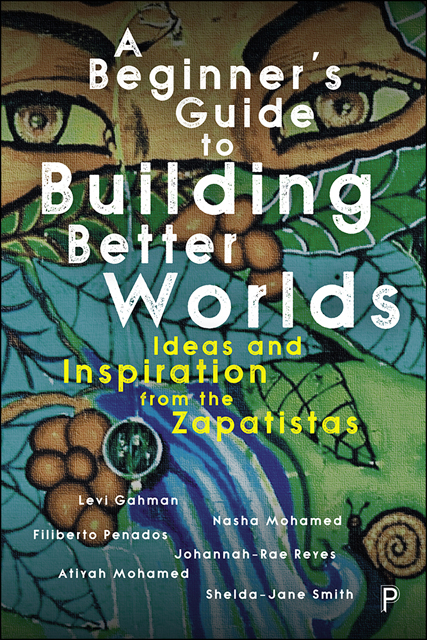Book contents
- Frontmatter
- Dedication
- Contents
- List of figures
- Guilty parties
- 1 Introduction: from liberal bystanding to emancipatory praxis
- 2 A world where many worlds fit
- 3 The coloniser’s model/neoliberal state of the world
- 4 Modernity-coloniality and Indigenous realities
- 5 Dispossession, extractivism and violence
- 6 Critical consciousness and praxis
- 7 Political education and radical pedagogy
- 8 Gender justice and social reproduction
- 9 Health, food sovereignty, solidarity economies
- 10 A battle for the soul of education
- Notes
- References
- Index
6 - Critical consciousness and praxis
Published online by Cambridge University Press: 13 October 2022
- Frontmatter
- Dedication
- Contents
- List of figures
- Guilty parties
- 1 Introduction: from liberal bystanding to emancipatory praxis
- 2 A world where many worlds fit
- 3 The coloniser’s model/neoliberal state of the world
- 4 Modernity-coloniality and Indigenous realities
- 5 Dispossession, extractivism and violence
- 6 Critical consciousness and praxis
- 7 Political education and radical pedagogy
- 8 Gender justice and social reproduction
- 9 Health, food sovereignty, solidarity economies
- 10 A battle for the soul of education
- Notes
- References
- Index
Summary
Do you remember that saying about not being able to see the forest for the trees? Well, as Zapatistas, we see the roots.
The ZapatistasEducation is at the heart of all politics, values and ethics … or lack thereof. Paulo Freire, author of Pedagogy of the oppressed (2018), in critically analysing the malevolent relationship between colonisers and the colonised, oppressors and the oppressed, the privileged and the underprivileged in Brazil, provides us with an invaluable insight into how education can be put to the service of freedom. In particular, his notion of critical consciousness (conscientização) equips us with critical tools we can use to expose, dissect and abolish cultural norms and social institutions that are both founded on and reproduce oppression and exploitation. That is, in order to co-create a socially just and democratic society, Freire notes we must work from the bottom up (that is, the grassroots) to critically analyse the systems and institutions that compose a society and make the political decision to collectively act against repressive forces. On this point, Freire (2018: 39) writes:
The more radical the person is, the more fully they enter into reality so that, knowing it better, they can transform it. This individual is not afraid to confront, to listen, to see the world unveiled. This person is not afraid to meet the people or to enter into a dialogue with them. This person does not consider theirself the proprietor of history or of all people, or the liberator of the oppressed; but they do commit theirself, within history, to fight at the side of the oppressed.
Most importantly, Freire is a strong proponent of not only recognising but also taking seriously the agency, acumen and knowledges of the poor, oppressed and communities-in-struggle.
From there, and in order to change the world, Freire endorses engaging in praxis, which broadly is the simultaneous process of questioning authority and institutions; being present with communities; developing ideas together; and both acting and reflecting on how we are organising against structural violence, oppression and inequality. Structural inequality is the result of systems of power obstructing certain groups and communities from benefiting from and enjoying the same privileges, rights, opportunities and life chances as majority or normative groups.
- Type
- Chapter
- Information
- A Beginner’s Guide to Building Better WorldsIdeas and Inspiration from the Zapatistas, pp. 70 - 83Publisher: Bristol University PressPrint publication year: 2022



